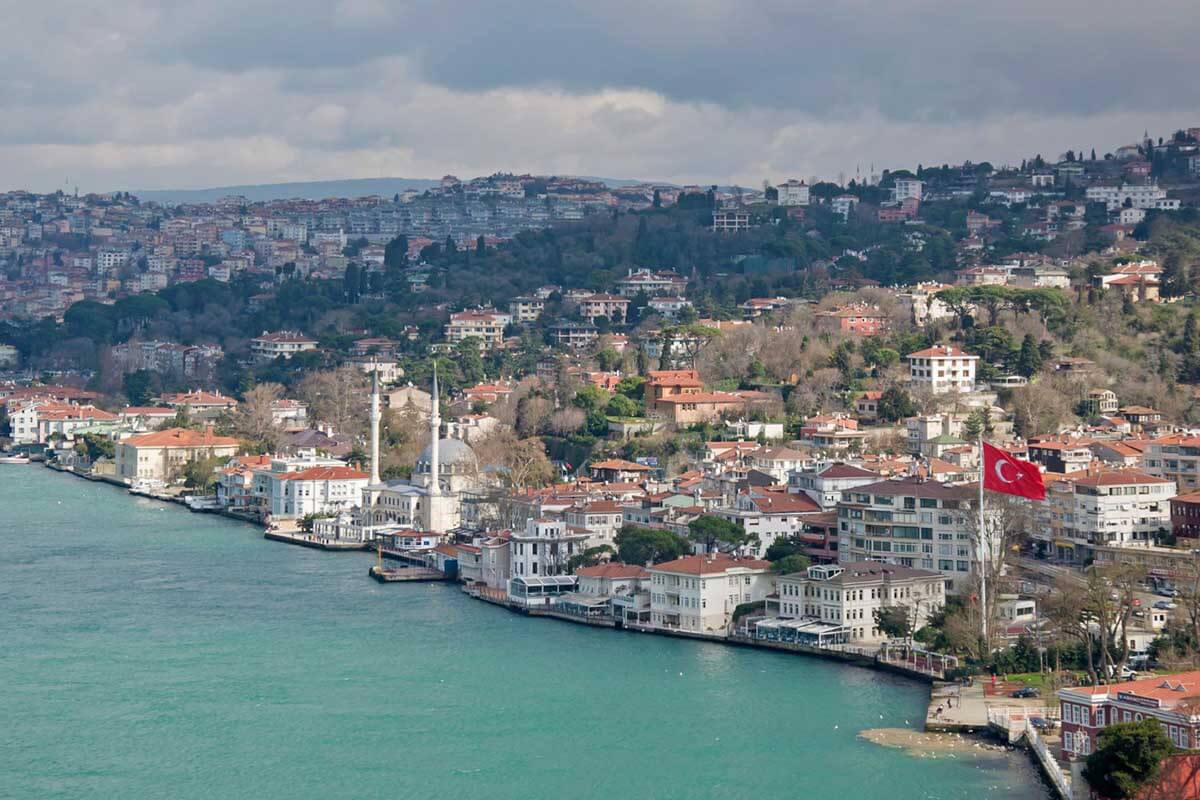
Since the end of November 2021, the construction market started summing up some prospects for the year ahead. We’ll share some of this with you.
In 11 months of 2021, 2,768,262 sales contracts were signed in Turkey. Almost 20 billion Turkish liras (TL) were received from taxes of renewing property rights. This was 19,544,422, 033 TL.
There were 357,446 real estate purchases and sales in November. This was 22% more than the previous month (291,853 transactions). November’s sales brought in 2,854,043,405 from notary services of owners renewing their property.
Turk.Estate reported that there were residential real estate 1,231,524 transactions, 482,845 land plots, 731,825 fields, and 123,068 for workplaces and offices.
The top 7 leaders with the highest number of purchases and sales are:
- Istanbul – 354,025 transactions of different types of real estate;
- Ankara – 192,505;
- Izmir – 134,972;
- Antalya - 104,022;
- Konya – 97,523;
- Bursa – 96,398;
- Mersin – 74,432.
There were 178,814 housing purchases and sales in November. This is 59% more than the previous year. The top 3 leaders held their positions:
- Istanbul – 31,706;
- Ankara – 17,117;
- Izmir – 11,116.
You can check out a detailed monthly report in the FAQ section.
The end of 2021 was hugely successful because the number of sales to foreigners broke all records. November was most successful in the last 25 months.
In November 2021, 7,363 residential real estate units were sold to foreign citizens. This is 48.4% more than 2020. This rose by 39.4% in January-November compared to 2020, amounting to almost 51,000 (50,735 transactions).
Housing sales to investors from abroad are steadily growing. It’s grown from 3% to 4.1%. By the end of 2021, the average cost of this housing is approaching $200,000. The Association for the Promotion of Turkish Real Estate Abroad hopes to raise this by another 1/8 in the next 3 years by $25,000 and $225,000 after.

Investors can get fast-tracked citizenship when they buy a house or apartment for $250,000 or more.
There’s a regulation since September 2021 for the cost of housing to be independently checked. This prevents investors from being charged more or becoming victims of fraud. This used to worry realtors who insisted on these reasonable restrictions for fast-tracked citizenship.
Let’s talk more about the real estate market. Turkey’s fast exchange rate increase since September made all sectors, including real estate, unpredictable. Many market players are waiting for things to settle.
The Turkish media has been discussing that rising construction costs from the high dollar exchange rate, a reduced housing supply, large-scale efforts to transform cities across the country, and high inflation have all made housing a serious problem in Turkey.
The housing price index by the Central Bank (CB) shows a difference of 35.51%. in prices between September 2021 and 2020, The average annual increase in prices for new buildings is 43.5% and 33.9% for secondary real estate. Istanbul’s figures are 39.1% for new homes and 32% for secondary ones (in autumn).
Ismail Ozjan, president of the Association of Real Estate Marketing and Sales Specialists (GAPAS), looked at housing sales and rental rates: «Will I lose money taking into account the inflation rate? Suddenly I'll be poorer?» For the last two quarters, we have been constantly observing how sellers are putting up more and more new prices for property with an increase of 15-20%. The dollar exchange rate, which started in September at 8.30 for 1 unit, exceeded 13 units in December with a reduction in the Central Bank's interest rate by 400 basis points. The Turkish lira has lost more than 40% since September (according to data on December 16, 2021, the exchange rate is already equal to $1 = 15.5 TL. - Ed.)»
Home loan interest is too high for people to accept even it’s lowered. There’s hope that discounted rates will positively impact sales but Mr. Ozzhan stressed that this drop did not affect how many houses and apartments are available. The psychological limit for many people is a monthly rate of no more than 1%. And until this, Turkish citizens are still very cautious about buying a home with a mortgage loan.
According to the statistical agency TÜIK, the number of homes purchased on credit in the first 3 quarters of 2021 dropped by 60.7% compared to the previous year of 209,904 transactions. Mortgage sales of the total was only 20.4% in October.
Ismail Ozzhan also said that it’s important for homeowners to get stable rent. A tenant paying regularly is more important than the rental amount. «We - GAPAS - advise property owners to carefully choose tenants. After all, high incomes, unfortunately, may not always be regular. In this case, the owners lose. We think that it is always better to rent housing to consistently paying and reliable tenants who will regularly make payments, even if the tariff agreed upon will be slightly lower than the market rate».
It's rare for investors to buy Turkish housing in Turkey just to increase its value - calculations also go to rental income.
The Turkish real estate platform GYODER’s «Indicator of the Turkish real estate sector for the 3rd quarter of 2021», reported that the average cost of 1 square meter of living space in the country has already reached 4851 TL by the end of October.
Here’s some information about the second and third quarter results:
- In the first 6 months of 2021, the total number of residential buildings increased by 88.4%, their area by 45.3%, and the number of apartments by 49.8% compared to 2020.
- The volume of home sales in the third quarter of 2021 increased by 36.8% compared to the previous quarter with 396,328 transactions.
- The purchasing power index for housing in Turkey hasn’t changed compared to the previous quarter. It just dropped by 40.2% compared to the previous year.
- Istanbul is popular. Sales transactions increased by 22.33% in the third quarter compared to the second;
- Consumers who purchased houses in branded projects from well-known developers (throughout the country) in the third quarter of 2021, most often chose the maximum down payment without bank lending.
- As much as 9.05% of sales in branded housing projects were by foreign buyers.
- At the end of the third quarter of 2021, international investor sales increased by 42.8% compared to 2020.
- At the end of the third quarter of 2021, foreigners preferred Istanbul the most for real estate investments. All real estate transactions increased by 44.3% at the end of the third quarter of 2021, compared to 2020.
- Sales to foreigners increased by 60.2% in August-October (III quarter) compared to April-June (II quarter). There were 16,991 sales for August, September and October.
The statistics for the fourth quarter and 2021 overall will be released soon.

GYODER analysts also looked at the construction market now using data from the end of the year.
While business behavior and demand in construction and real estate were affected by the pandemic, they started to recover steadily in early 2021. Production growth of 20% was also recorded. But some of these problems remain like in production processes that stopped. This made it difficult to supply construction sites and meet demands. Raw material price rises across the world were even more of a problem in Turkey because of inflation. In the fall, developers even went on strike because of this. They hoped authorities would somehow regulate the tariff rises for building and other important materials. Raw material price rises and extremely unstable exchange rates made prices increase across the world.
Experts believe that the pandemic’s impact on the global economy and social life will carry on for a while. According to the IMF forecasts, the global economy is expected to grow by 5.9% by the end of 2021 and 4.9% in 2022. The IMF also said that the forecast for the Turkish economy‘s growth for 2021 increased from 5.8% to 9%. But the estimated figure for 2022 stayed the same at 3.3%.
The market situation is slowly stabilizing despite inflation. The production of building materials in Turkey is growing but not as fast as we would like.
There is now more demand than supply. An important indicator of the construction and real estate sector in Turkey is housing sales. Total sales in 2020 was 1,499,000 units. This could happen thanks to the lowered interest rates on housing loans. It helped reduce the pandemic’s effects and support the economy’s growth by using the multiplier effect.
Mortgage rates aren’t so profitable this year although the government lowered them. Total transactions in January-October 2021 were 949,000 compared to 1,161,000 for the same period last year. The number of mortgages dropped by 64% in those 9 months as many preferred to pay cash or use promissory notes or installments for housing.
So this rising demand, short supply and increased construction costs – which greatly hinders the construction of cheap housing – caused an increase in real estate prices.
For things to stabilize, there must be a broad plan of action: balance commodity prices, drop loan rates, give subsidies and other preferences to citizens with low incomes, and other groups who need it. It’s also very important to follow the global trend of sustainable and environmentally-friendly development and construction. It’s useful to care for nature and ensures buildings are durable with low daily operating costs. It allows saving in the long run.
The personal and social factors are as important as macroeconomic ones for the Turkish construction and housing sector. It's one of the strongest engines of the country's growing economy. The downward trend in interest rates has increased demand in real estate markets. Housing prices increased by 30% or more over the year, and in the five largest cities of the country – up to 52%. 30% is the largest annual increase in the last 10 years. And in 2022, this increase in residential real estate prices will continue and may reach 60%.
The annual increase in the number of new homes was 35.4% - a big difference compared to when the pandemic first started.
While the world is still feeling the pandemic’s economic effects, the residential real estate market is more reliable than any other sector and won’t lose its long-term value. According to data by MINELAB, total capital gains and gross rental income in Istanbul in July is 3.22% and up to 34.22% (and more) annually. Because of less available housing on the market, rental prices increased in almost all cities and this winter, they will increase even more. This was worsened by the autumn earthquake in Izmir in 2020. It raised the demand for high–quality, low-rise and detached houses. Also, the return of students to full-time study and office workers from «remote» to offices raised the demand too. Students prefer to live in comfortable dormitories or rent apartments, office workers also didn’t leave the city center, and many waited out the pandemic in their parent’s houses. Other university cities see a similar pattern. But whether a city has a university or not, it’s a good idea to invest in the Turkish housing market as rental prices are rising across the country.
